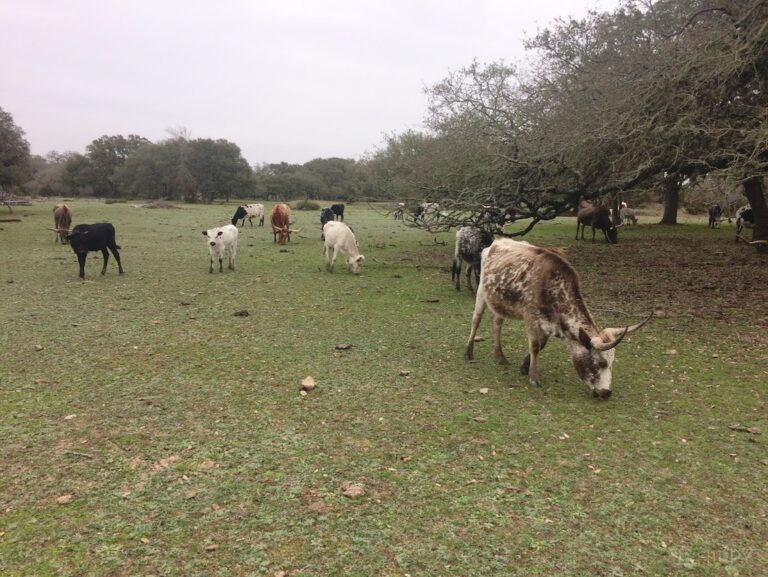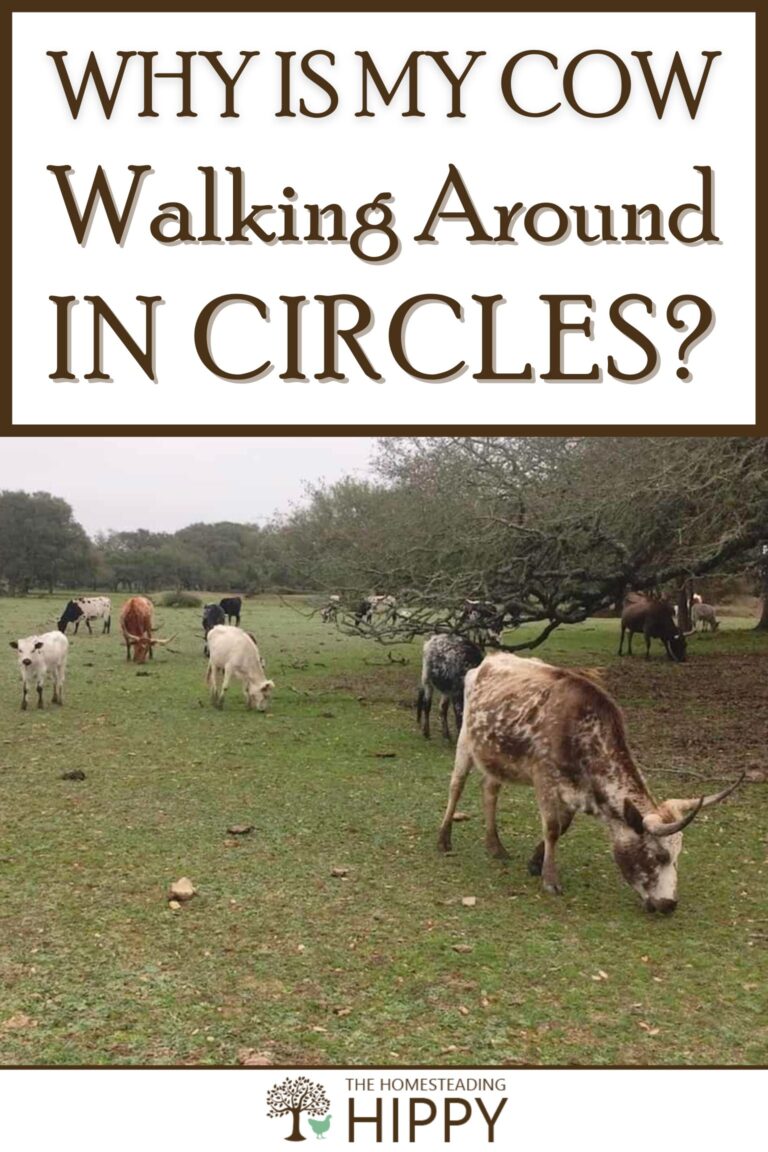If you have spent enough time in a dairy farm country you have probably seen it before. A cow is walking around in circles, seemingly for no reason, mooing pitifully.

It’s a strange, sad sight, but have you ever wondered why they do it? There is seemingly no reason for it. Why do cows sometimes walk around in circles?
A cow that is walking in circles is usually attributable to listeriosis, a neurological infection caused by the Listeria monocytogenes bacteria.
This infection is usually the result of eating contaminated food and can cause symptoms such as disorientation, loss of balance, circling, and muscle tremors. If not treated aggressively it can even lead to death.
Listeriosis is a tough-to-kill, highly transmittable illness that most seasoned farmers are already aware of.
It is most often seen in cattle that are confined to small areas where they are eating contaminated food, or drinking contaminated water.
Cows that are allowed to graze on open pastures are much less likely to contract the disease, but any cow that contracts it can easily be patient zero in a major epidemic for your herd. You can learn more about this harrowing sickness here.
What is Listeriosis, Exactly?
Listeriosis is a serious infection caused by the bacterium Listeria monocytogenes. This bacterium is found in soil and water, as well as in the intestinal tracts of some animals.
It can contaminate food crops, specifically spoiled haylage and silage, which is how it usually infects animals.
What are the Effects of Listeriosis?
Listeriosis affects the central nervous system of infected animals and can cause muscle tremors, loss of balance, and even death.
In cows, it is most often seen as a condition called “circling disease” or “awakening paralysis”. This is because affected cows will walk in tight circles, mooing piteously.
The infection can also lead to encephalitis and meningitis: inflammation of the brain and inflammation of the membranes around the brain and spinal cord, respectively.
How Does Listeriosis Spread?
Listeriosis is spread through contaminated droppings, food, or water. It can also be transmitted from animal to animal through contact with bodily fluids like saliva or milk.
This means that a mother can easily transmit the disease to her calf by way of milk, and to humans if the milk is not pasteurized.
Cattle that are confined to small spaces are at a higher risk of contracting the disease, as are those that eat contaminated silage or haylage. Open pastures are much less likely to harbor the bacteria, so cattle that graze freely are at a lower risk.
How Quickly Does Listeriosis Take Effect?
The incubation period for listeriosis is usually between one and four weeks, but it can be as short as a few days.
This means that an animal can appear healthy for weeks after being infected, only to suddenly become very ill.
It is possible for infected cows to die in just a couple of days. Typically a cow that is showing symptoms will live between 4 and 15 days.
For this reason, it is important to be vigilant and check your cattle regularly for any signs of illness. Any sign of listeriosis infection demands immediate preventative measures and medical intervention.
How is Listeriosis Treated?
There are two primary methods of treating listeriosis in cattle. The first is through the use of antibiotics.
Unfortunately, L. monocytogenes is resistant to many common antibiotics, making treatment difficult, and in addition, it must be caught early for antibiotics to prevent the bacteria from causing severe damage.
The second method of treatment is through the use of vaccinations. Vaccines are available that can help to prevent the spread of Listeria infections.
However, they are not always 100% effective and should be used in conjunction with other prevention methods, such as good sanitation practices.
How Can I Prevent Listeriosis?
The best way to prevent listeriosis is to practice good biosecurity on your farm. This means keeping your animals clean and healthy and preventing contamination of their food and water.
It also means isolating any sick animals right away, so they hopefully don’t infect the rest of your herd.
If you suspect that your cattle are suffering from listeriosis, call your veterinarian immediately. Early diagnosis and treatment is essential to preventing the spread of this disease.
Listeriosis is a serious disease that can quickly devastate your herd. However, by being vigilant and taking preventive measures, you can help to keep your cows healthy and safe.
What are some Other Possible Reasons My Cow Could be Circling?
Though listeriosis is the most common and well-known cause of circling behavior, it isn’t the only one. There are a variety of other potential causes including:
1. A Food Intolerance Or Allergy
If your cow is suddenly introduced to a new food, she may have an intolerance or allergy to it. This can lead to gastrointestinal upset and subsequent circling.
2. An Ear Infection
An ear infection can cause a cow to feel dizzy and off-balance, leading her to circle intermittently in an effort to get away from or alleviate the pain.
3. A Neurological Disorder
A variety of neurological disorders can cause a cow to circle. These disorders can be caused by a variety of things including injury, toxins, and infections.
4. Meningeal Worm Infection
The meningeal worm is a parasitic roundworm that infests the spinal cord and brain of deer, sheep, and cattle. Infection with this worm can cause circling behavior as well as a variety of other neurological symptoms.
5. Tick Paralysis
Tick paralysis is a condition caused by a toxin in the saliva of some ticks. This toxin can cause weakness and weakness leading to paralysis, which may lead to listing, stumbling, and circling.
6. Head Injury
A traumatic head injury can cause confusion and disorientation, leading a cow to circle. If you think your cow was kicked or rammed, this might be the cause of the circling.
Again, if you notice your cow is walking in circles, the best thing to do is consult your veterinarian.
They will be able to determine the cause and recommend the best course of treatment. Don’t let your cow continue to suffer, get her checked out as soon as possible!

Tom has built and remodeled homes, generated his own electricity, grown his own food and more, all in quest of remaining as independent of society as possible. Now he shares his experiences and hard-earned lessons with readers around the country.
Find out more about the team here.
